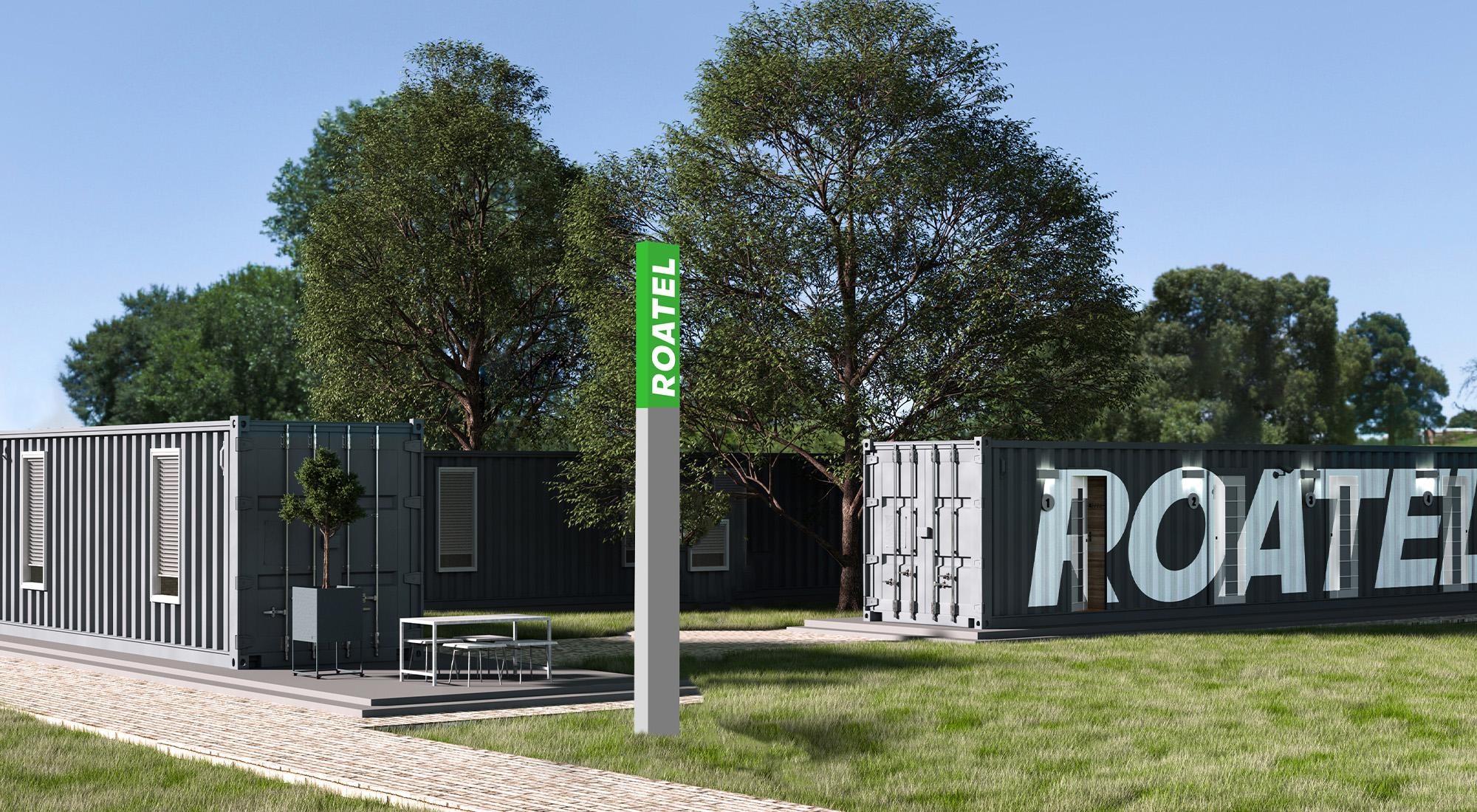14. Februar 2022
Heroes of the Road: No place for truckers to sleep and rest
Von Patrick Seeger (dpa)
There is a lack of parking spaces and overnight accommodation for long-distance drivers on Germany’s autobahns. A new EU regulation has tightened things up since the beginning of the year.
Frankfurt/Staufenberg – Almost every driver who is still driving in the dark or on weekends on the autobahns in Germany knows the sights: completely overloaded parking lots and parked with trucks that it is almost impossible to get through. The truckers don’t do it voluntarily. You have to comply with prescribed, statutory rest periods – come what may. But the real problem: there are far too few parking spaces in Germany for all the trucks on the street to even begin to master the problem.
No place for truckers to sleep and take a break: in Lower Saxony alone, around 2,400 parking spaces are missing
“Nationwide there is a lack of 30,000 parking spaces, in five years it will probably be 40,000,” says Thorsten Hölser from the Hesse/Rhineland-Palatinate Freight Forwarding and Logistics Association. In Hesse alone, the Federal Ministry of Transport identified almost 3,000 missing truck parking spaces in a 2018 count. In Rhineland-Palatinate there is a lack of more than 1800 parking spaces, in Lower Saxony around 2400.
There are far too few parking spaces for trucks on the German autobahns. In Lower Saxony alone there are around 2,400. (Archive image)
© Patrick Seeger/dpa
Politicians are always trying to catch up with this shortage, but there is no real plan to reduce the underfunding, says Hölser. “But that’s not just down to federal or state politics,” he emphasizes. If parking spaces are to be created, this would often fail due to the resistance of the municipalities and residents. “Everyone wants to order online and get next-day delivery, but nobody wants to see trucks.”
No place for truckers to sleep and take a break: the ban on sleeping in cabins makes the situation even worse
The problem is exacerbated by the so-called Cabin sleep ban*. As part of an EU reform, truck drivers were banned from spending their 45-hour weekly rest period in their cab. If they cannot be at home, they have to spend it in a hotel or a guesthouse. The regulation exacerbates the already blatant situation in the rest areas. “Full becomes even fuller,” says Hölser.
- To the To protect truck drivers from over-tiredness and thus reduce the accident rate, statutory driving and rest times apply in Germany. In other words, long-distance drivers have precise regulations as to how long they can be on the road and when they have to take a break.
- The daily rest period is eleven hours. During the daily rest period, there is no cabin sleeping ban for drivers.
- The weekly rest period must be at least 45 hours and taken in one go. During this period, the so-called applies “cabin sleep ban”. Failure to do so will cost the driver EUR 60 per hour or part thereof. If the freight forwarder cannot prove that they instructed the driver to stay overnight in accommodation, they can expect a fine of EUR 180 per hour or part thereof.
- Under certain circumstances, the weekly rest time reduced to 24 hours will. However, the missing 21 hours must be made up for in the coming week.
The same applies to overnight accommodation on the motorways. “There is certainly a shortage, even if we don’t have any concrete figures on this,” says Alexander Quabach, Managing Director of the Association of German Autohöfe (Veda). “We keep getting inquiries from companies looking for accommodation for their employees.” The truck stop operators are therefore increasingly building hotels themselves, but are also in talks with alternative providers.
No place for truckers to sleep and take a break: Overseas containers are becoming mini-hotels for rest stops
One such provider is the Düsseldorf startup Roatel – the name is made up of road (German: Straße) and hotel. The company – founded in 2019 by Ralf Peter Kals, Christian Theisen and Martin Swart – converts overseas containers into mini-hotels that can be set up at truck stops, rest stops and petrol stations.
© Swen Pförtner/dpa
Four of these accommodations are currently in operation – at the Bremen Freight Village, in Schopsdorf (Saxony-Anhalt) and in Löningen in Lower Saxony and, more recently, in Staufenberg-Lutterberg. According to Managing Director Kals, locations in Homberg (Efze) in North Hesse and in Wörrstadt in Rhineland-Palatinate will follow in a few weeks. “By mid-2022, ten Roatels are to be set up nationwide, and by the end of the year 30.” The offer has been well received at the first locations, and not only by truckers, reports Kals. “We also address fitters, craftsmen and business travelers.”
According to Kals, a company from Löningen near Osnabrück is converting the containers for around 100,000 euros each. There is space for four rooms, each measuring seven and a half square meters, in a container. They are equipped with a bench, wardrobe, shower, toilet, air conditioning and heating, satellite TV, WiFi, USB and electric shutters. “The containers are insulated against heat and noise,” explains Kals. There is no reception. “Check-in and check-out are contactless via app.” Cost: 49 euros per night.
More than 23,000 missing truck parking spaces identified
According to the Federal Ministry of Transport (as of 2018), there are around 51,600 truck parking spaces on Germany’s motorways, and there are around 19,200 more next to the motorways, for example at truck stops. According to the ministry, around 23,300 parking spaces were missing in 2018. According to the Autobahn GmbH des Bundes, a 5-point plan is being implemented to improve parking capacity. Among other things, existing parking space will be optimized, new ones will be created and telematic parking processes, i.e. convoy and compact parking, will be increasingly used. Vehicles are parked one behind the other, sorted by departure time, in order to make better use of existing parking spaces. (dpa)
The logistics companies carry them. For German companies, however, this is only a limited issue, explains Hölser. Since the cabin sleep ban only applies to the weekly rest periods, drivers who are traveling throughout Europe are particularly affected. Cross-border long-distance traffic is very strongly implemented by Eastern European companies. “The majority of German drivers are back home in the evening or at the latest at the weekend.” (With material from the dpa) * kreiszeitung.de and merkur.de are offers from IPPEN.MEDIA.
Quelle: World Today News (zuletzt abgerufen am 10.05.2022)

